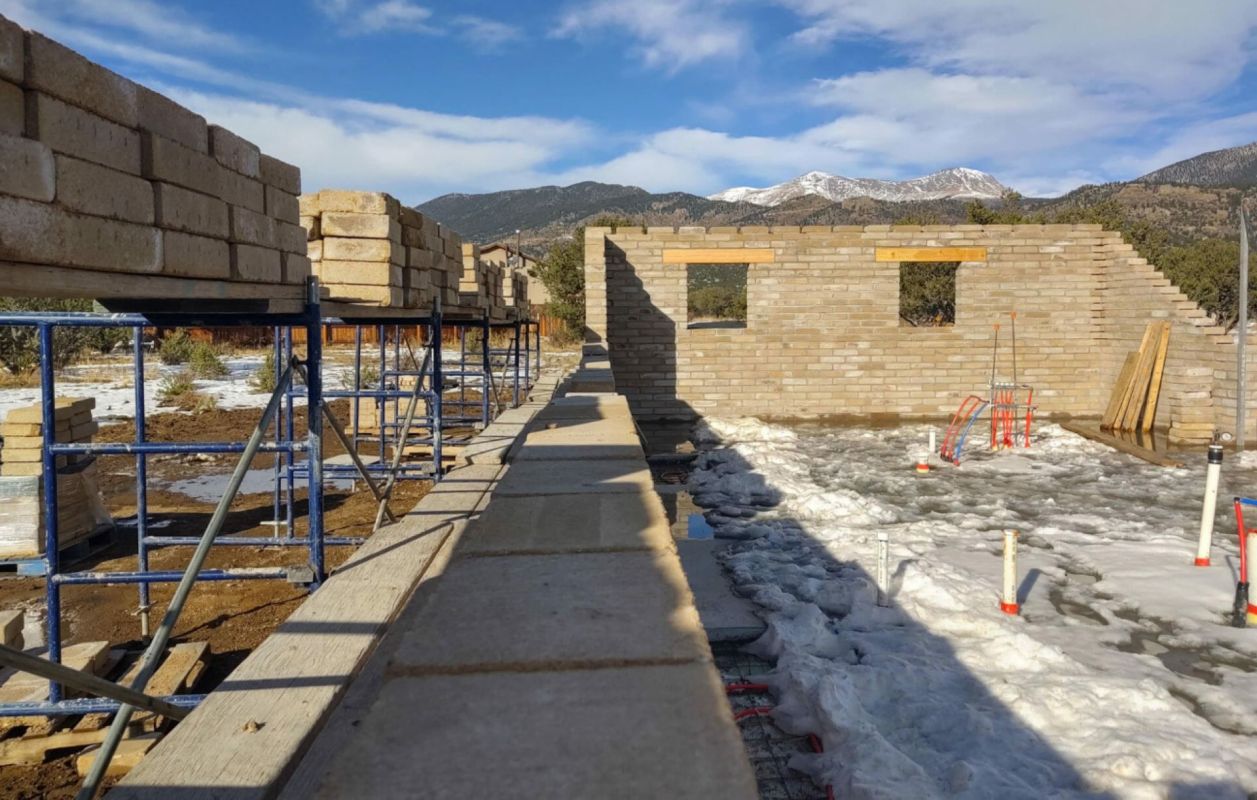One entrepreneur is demonstrating why new isn't always better, proving yet again that taking advice from Barney Stinson is probably not in anyone's best interest.
Utilizing ancient techniques, Colorado Earth is making fireproof homes with bricks that could become even stronger in the face of wildfires and also save people money on electricity, as Sam Brasch detailed for CPR News last November.
The company, which was founded in 2017 by engineer and architectural designer Lisa Morey, gets the material for its bricks — called ecoBlocks — from a site in Golden, Colorado, that was chosen because of its clay-rich soil.
In order to make the fire-resilient building material, Colorado Earth, which pulled inspiration from methods in New Zealand, blends the raw soil with water and crushed limestone before a hydraulic press pushes the mixture into the blocks.
People have been building structures with mud and dirt for thousands of years, as Brasch pointed out.
The Great Wall of China, one of the new Seven Wonders of the World, is one such example, with National Geographic noting a section thought to be 2,500 years old was constructed with hard-packed soil known as "rammed earth."
Michele Barbato, a structural engineer and professor at the University of California, Davis, told Brasch that earthen bricks "get better with fire," but he believes cultural changes in the construction industry after World War II caused these ancient methods to fall to the wayside in favor of mass production.
With wildfires increasing in frequency and severity because of rising global temperatures, the techniques revived in the United States by Colorado Earth could go a long way to creating climate-resilient neighborhoods that can help keep us safe and comfortable.
Morey added that reducing harmful pollution is a key consideration of her company.
"During this whole process, there's no heat applied. That's important because it takes a lot of energy to fire a brick, and that's not necessary for the blocks we produce," she said, also highlighting how earthen walls lessen the need to utilize cooling and heating features in homes because of their ability to moderate temperatures.
Citing data from the United Nations Environment Programme, Brasch noted that the construction industry produces almost 40% of heat-trapping gases globally.
Meanwhile, data from the Environmental Protection Agency shows that electricity production is responsible for 25% of those emissions in the U.S.
Colorado Earth has already been involved in rebuilding multiple homes after the 2021 Marshall Fire in Boulder, Colorado, with a number of projects completed and underway.
Join our free newsletter for weekly updates on the coolest innovations improving our lives and saving our planet.









